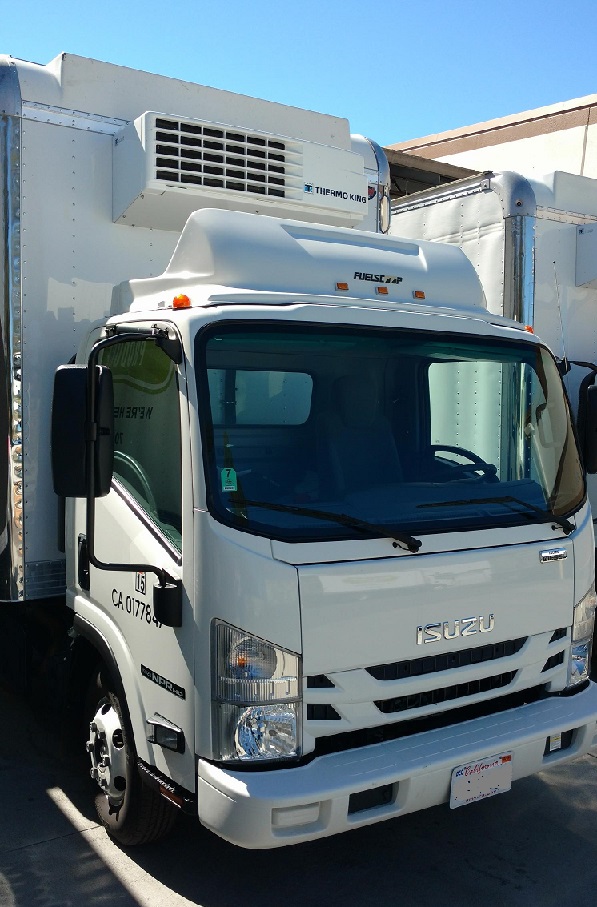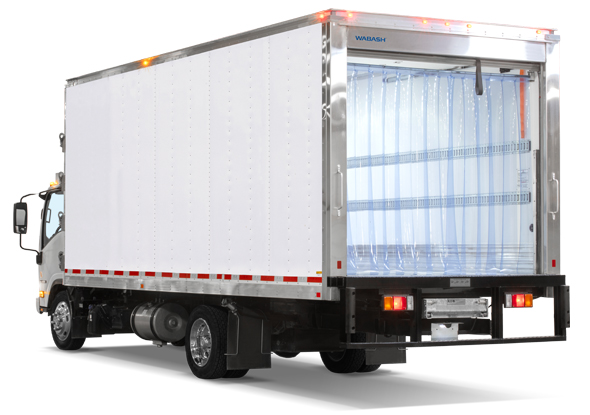Thermo King Truck Refrigeration Units: Best Options for Temperature Control
Thermo King Truck Refrigeration Units: Best Options for Temperature Control
Blog Article
Leading Technologies in Transport Refrigeration: Enhancing Effectiveness and Security
The landscape of transportation refrigeration is undergoing considerable transformation, driven by advancements intended at enhancing both efficiency and safety and security. As these developments proceed to advance, it is vital to discover their ramifications on functional practices and regulative conformity, motivating a closer assessment of just how they reshape the future of transport refrigeration.
Smart Temperature Monitoring Equipments
In the realm of transport refrigeration, clever temperature level monitoring systems have actually emerged as an important technology for ensuring the stability of temperature-sensitive products. These innovative systems utilize Web of Points (IoT) technology to offer real-time information on temperature level variations, making it possible for drivers to preserve ideal problems throughout the supply chain. By constantly tracking the temperature of cooled containers and lorries, business can promptly identify inconsistencies that might endanger item top quality.

Furthermore, clever monitoring systems frequently integrate automated signals and alerts, enabling stakeholders to react quickly to any kind of potential concerns. This positive strategy not only lessens the risk of putridity but additionally enhances compliance with governing standards regulating food safety and pharmaceutical transportation.
The combination of information analytics within these systems also helps with anticipating maintenance, assisting drivers to predict potential tools failures prior to they take place. This capacity reduces downtime and enhances functional effectiveness, inevitably causing cost financial savings.
Eco-Friendly Refrigerants
Smart temperature level tracking systems play an important duty in keeping item high quality, yet the efficiency of transport refrigeration also depends upon the selection of refrigerants utilized. As environmental worries rise, the change towards eco-friendly refrigerants has actually become imperative. Typical refrigerants, such as hydrofluorocarbons (HFCs), are well-known for their high International Warming Potential (GWP), adding dramatically to climate adjustment. In comparison, emerging options like hydrocarbon-based cooling agents and hydrofluoroolefins (HFOs) existing lower GWP choices, offering both efficiency and sustainability.
These eco-friendly refrigerants not only reduce environmental effect yet likewise straighten with global policies aimed at phasing out unsafe substances. Their fostering can lead to enhanced power performance, inevitably decreasing operating expenses for transport refrigeration systems. The use of all-natural cooling agents, such as ammonia and carbon dioxide, has actually obtained grip due to their outstanding thermodynamic homes and reduced ecological impact.
Buying environment-friendly refrigerants is not merely a regulative compliance measure; it stands for a critical decision that enhances brand credibility and promotes consumer loyalty. thermo king truck refrigeration. By focusing on sustainable techniques, business can add to a greener future while making certain the stability of transferred products
Advanced Insulation Materials
Making use of sophisticated insulation products is important for optimizing transport refrigeration systems, as they significantly boost energy performance and keep consistent temperature control. Standard insulation approaches often drop brief in preventing thermal transfer, causing enhanced power usage and rising and fall temperatures within cooled areas.
Arising materials such as vacuum shielded panels (VIPs) and aerogels offer remarkable thermal resistance, enabling thinner accounts without compromising performance. VIPs, for circumstances, utilize a vacuum cleaner layer to reduce convective and conductive warmth transfer, making them optimal for space-constrained applications. Aerogels, recognized for their permeable and light-weight structure, supply remarkable insulation while substantially lowering general system weight.
In addition, incorporating phase modification products (PCMs) right into insulation systems can further support temperature levels throughout transportation. These products soak up and release thermal energy, efficiently buffering versus outside temperature level variants.
The integration of these sophisticated insulation products not just reduces the operational costs related to power intake but additionally expands the read this post here service life of Full Article temperature-sensitive goods. As the transportation refrigeration sector proceeds to evolve, the adoption of ingenious insulation innovations will certainly be essential in boosting both performance and security in chilled transportation.
Automated Path Optimization
The effectiveness of transport refrigeration systems is significantly improved with automated path optimization, which leverages sophisticated algorithms and real-time information to identify one of the most efficient paths for delivery. By assessing various factors such as traffic patterns, climate condition, and shipment home windows, these systems can substantially decrease travel time and gas usage.
Automated path optimization lessens human error and subjective decision-making, which can lead to inadequacies. This innovation allows fleet supervisors to allocate sources a lot more efficiently, ensuring that chilled products preserve their required temperature level throughout the trip. By optimizing routes, companies can additionally improve consumer contentment with timely shipments.
Moreover, automated systems can adjust to unexpected conditions, such as road closures or abrupt web traffic spikes, permitting vibrant rerouting. This flexibility not just protects the stability of temperature-sensitive items but additionally contributes to general functional effectiveness.
Applying automated course optimization can lead to significant expense financial savings while reducing the carbon footprint related to transportation. As services increasingly prioritize sustainability, this advancement stands out as an essential element in contemporary transportation refrigeration, straightening operational goals with ecological duty. Eventually, automated course optimization represents a considerable improvement in the mission for performance and safety in transport refrigeration.

Real-Time Data Analytics
Automated course optimization substantially take advantage of the integration of real-time information analytics, which offers vital understandings right into the performance of transportation refrigeration systems. By using real-time information, transportation drivers can keep track of temperature level changes and equipment efficiency, guaranteeing that disposable goods are kept within needed parameters throughout transit. This aggressive approach not just enhances the top quality of the carried products however additionally alleviates the risk of wasting and loss.

In addition to improving performance, real-time analytics boosts safety by making sure compliance with regulatory standards for temperature level control. This not just protects public health but additionally strengthens a company's track record - reefer trucks thermo king. As the transportation refrigeration industry progresses, the assimilation of real-time data analytics becomes a cornerstone for driving advancement, sustainability, and functional quality
Verdict
In final thought, the improvements in transport refrigeration substantially enhance both performance and security within the sector. Smart temperature surveillance systems and real-time data analytics give vital oversight, while environmentally friendly cooling agents and advanced insulation materials contribute to sustainability and power performance. Additionally, automated course optimization algorithms not only lower travel time however additionally reduce ecological impact. Collectively, these technologies represent an essential evolution in transportation refrigeration, guaranteeing conformity with governing criteria and promoting a greener future.
The landscape of transport refrigeration is undergoing significant makeover, driven by innovations intended at boosting both efficiency and safety.Smart temperature surveillance systems play an essential function in keeping item quality, however the performance of transport refrigeration also hinges on the selection of refrigerants made use of. Their fostering can lead to boosted power effectiveness, eventually minimizing operating costs for transportation refrigeration systems. Inevitably, automated course optimization represents a considerable innovation in the pursuit for effectiveness and safety in transport refrigeration.
In verdict, the advancements in transport refrigeration significantly boost both performance and security within the industry.
Report this page